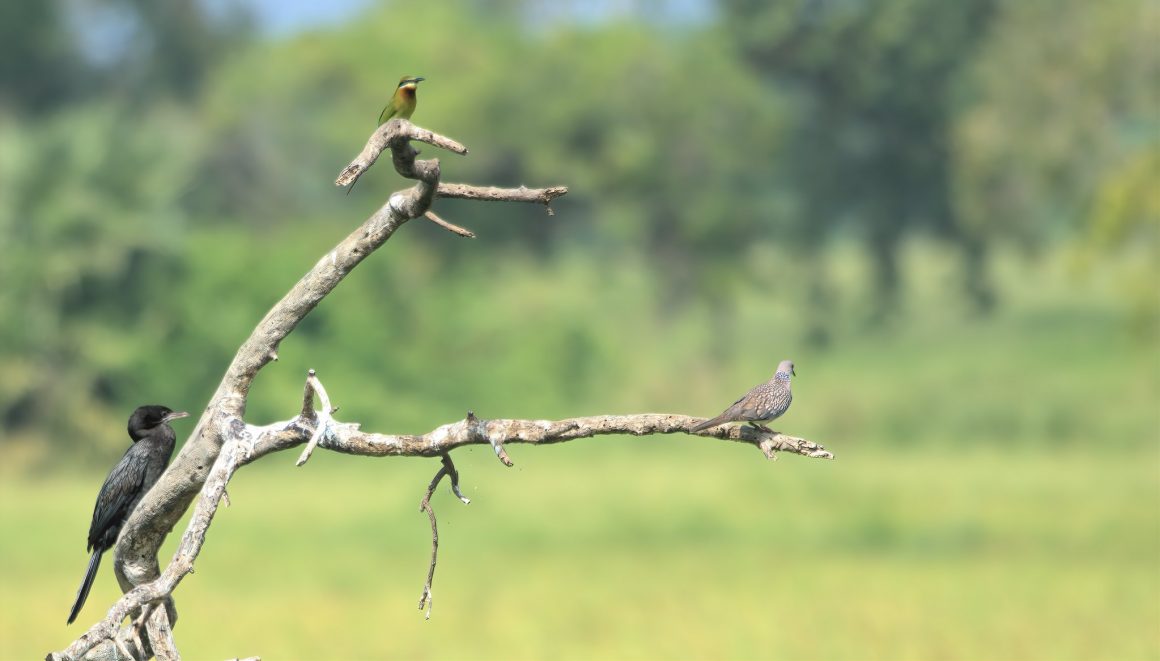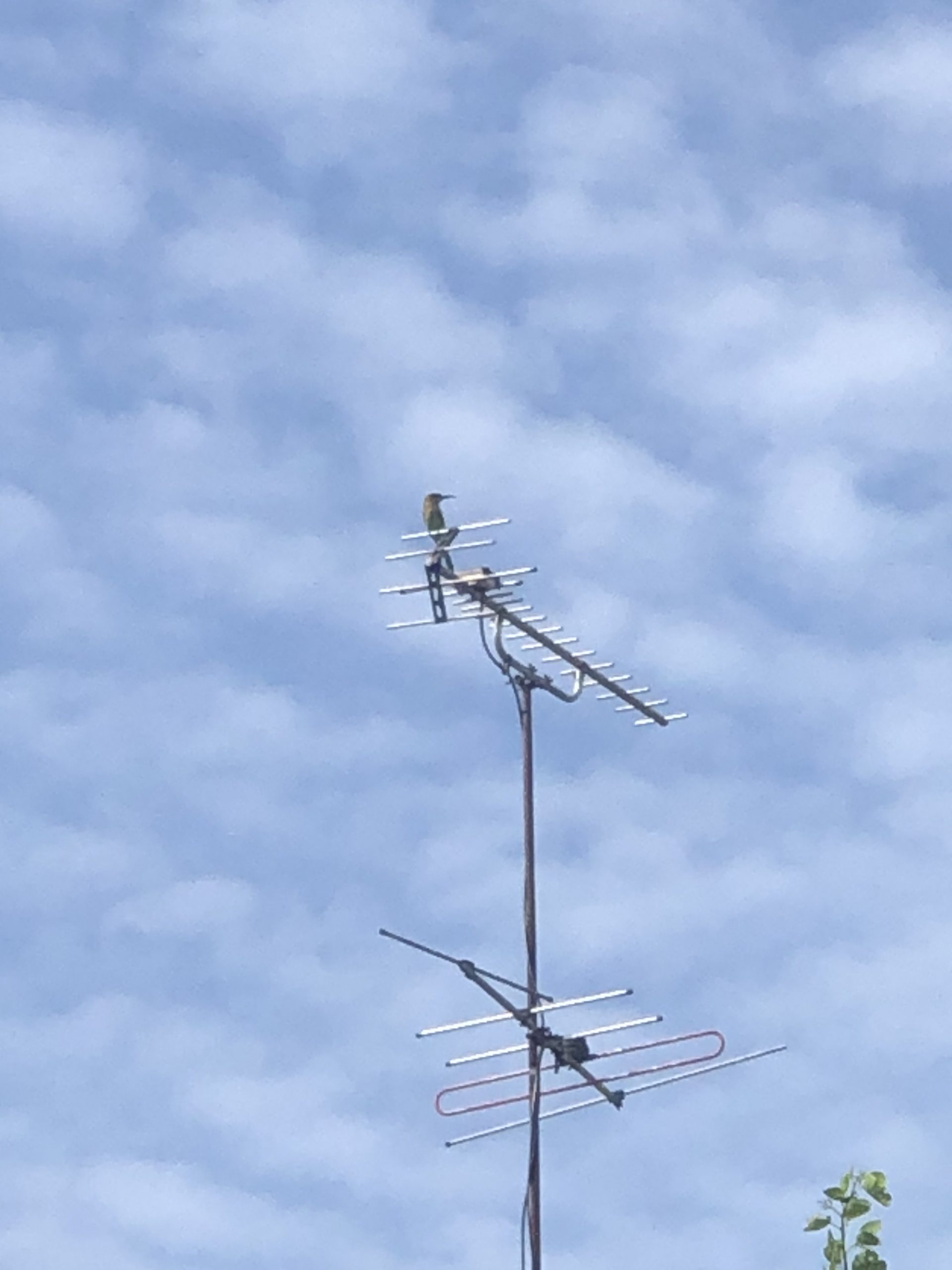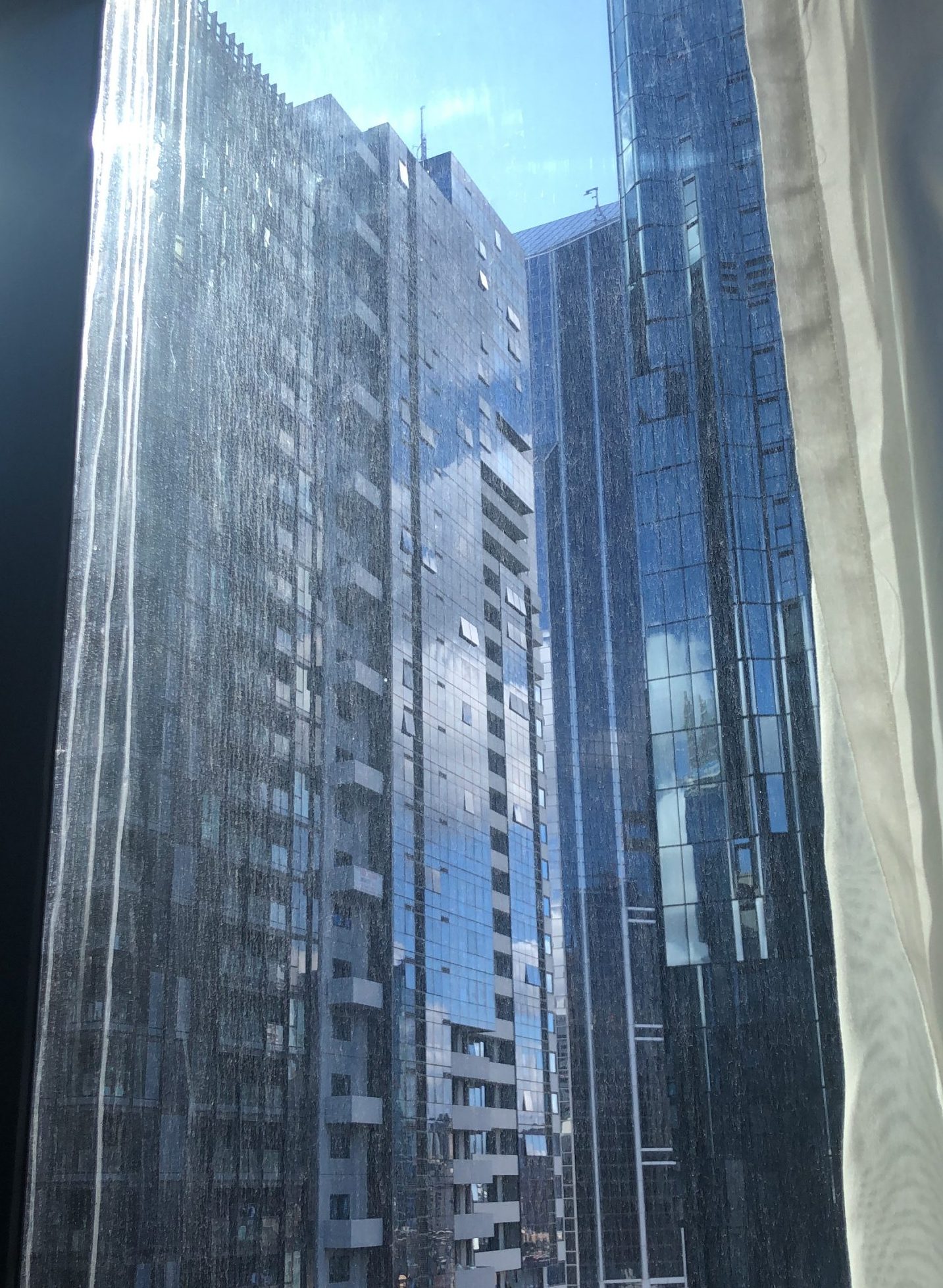In February 2020 I left my Melbourne home to travel to Sri Lanka for a cousin’s wedding and to spend some time with my parents. A couple of weeks later, Sri Lanka and most of the world went into lockdown. Like so many Australians, I found myself grounded and unable to return home. I ended up being stuck in Sri Lanka for more than a year.
I was lucky in many ways: I had a comfortable place to stay, my brother was next door and my family was nearby. However, as we all soon discovered, being confined in one place, unable to go out and interact with other people for months on end, is challenging.
I took refuge in my little rooftop garden. It overlooked a canal, a marsh and other rooftops. I started waking up early to watch the sunrise and took note of the birds that frequented the TV antennae of nearby rooftops. There was a particularly popular antenna on the rooftop opposite that seemed to be a soapbox for the birds. They would fight for the highest spot and sing loudly for all to hear.
I began recognising regular visitors and their calls and I gave them names and stories to entertain myself. There was the Spotted Dove, Asau Asau (which means ‘hear ye! hear ye!’ in Sinhalese), whose soulful coos and bowing dance moves didn’t seem to attract any girlfriends. He practised his dance a lot, to no avail. He even bowed to me a few times on my wall!

Sri Lankan wetland birds. Video: Upeka Kumarasinghe.
There were occasional guest stars: the Sri Lanka Drongos who would oust Asau Asau from his perch on the antenna and mimic all the other birds, the woodpecker who would try unsuccessfully to drill into the base of the antenna, and the Indian Bee-eaters who looked like colourful kites overhead. After the first four weeks of lockdown, the birds seemed to multiply. The canal was filled with pelicans and Little Egrets, all competing for whatever they could find in the water.

Over time, lockdown became a little easier to handle. I was grateful to have this cast of characters to help get me through those weeks of isolation. I had unwittingly become a bird watcher – a twitcher!
In April 2021, over a year after I left for what was supposed to be a short holiday in Sri Lanka, I was finally able to return home to Melbourne and had to go through the mandatory hotel quarantine. I thought two weeks would be nothing after going through months of isolation the year before. I had plenty to keep me occupied: work, phone calls with friends and family, streaming services. What I was not prepared for was being cut off from nature entirely and how isolating and strange it would make me feel.
My hotel was in the middle of the city so I could only see high-rise buildings outside my window. The windows didn’t open, so I couldn’t hear any birdsong. I kept looking out for any sign of wildlife but only caught a glimpse of a pigeon every now and then from the corner of my eye. I suppose I was too high up to see them properly. This lack of nature made me feel disoriented and disconnected. Birdsong is such a normal thing to hear in Australia wherever you are. It didn’t feel like I had actually come home. Being isolated from people was hard enough but being isolated from nature was a lot more difficult. Nature, after all, was what had kept me and many others sane during lockdown.
When I finally got out of quarantine and back to my own home, the first thing I did as soon as I had unpacked was to sit on my steps and watch the local birds visiting my rather neglected courtyard. There were some magpies, mynahs and a blackbird. This was a very different mix of birds to those I had got used to seeing in Sri Lanka. Soon, though, I was comforted by the sight of a Spotted Dove rather like Asau Asau busily digging through my flowerbeds looking for worms. All felt right with the world again.
Banner image courtesy of Aardwolf6886 via Flickr [CC BY-ND 2.0]




Leave a Reply